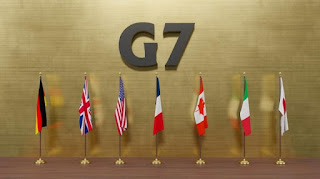G7 climate change commitments: a step in the right direction or a missed opportunity?
At the recent G7 summit in Germany, the leaders of the world's seven richest countries pledged to intensify their efforts to combat climate change. This included commitments to phase out coal power, reduce methane emissions and invest in renewable energy sources. While the pledges have been approved, they have also been criticized by some climate activists who say they do not go far enough.
Key commitments
One of the G7's most important commitments was to phase out existing coal-fired electricity generation in their energy systems by the first half of the 2030s. This is a big step forward as coal is the world's most polluting fossil fuel. The G7 also committed to reducing methane emissions from fossil fuels by 30% by 2030 and investing in clean energy technologies such as solar, wind and geothermal energy.
Challenges and opportunities
Despite these ambitious commitments, the G7 must overcome a number of challenges to achieve its goals. One of the challenges is the high cost of transitioning to a clean energy economy. Another challenge is the need to ensure a just transition for workers currently employed in the fossil fuel industry.
Despite these challenges, the G7 also has a number of opportunities to make progress on climate change. One possibility is the falling cost of renewable energy technologies. Another possibility is growing public support for climate action.
The role of climate activists
Climate activists have played a critical role in raising awareness of the climate crisis and pushing governments to take action. They have also been involved in developing and promoting solutions to climate change.
The G7 commitments on climate change are a step in the right direction, but they do not go far enough to address the climate crisis. To avoid the worst effects of climate change, the G7 will need bolder action in the coming years. Climate activists will continue to play an important role in holding governments accountable and pushing for stronger climate action.




Comments
Post a Comment